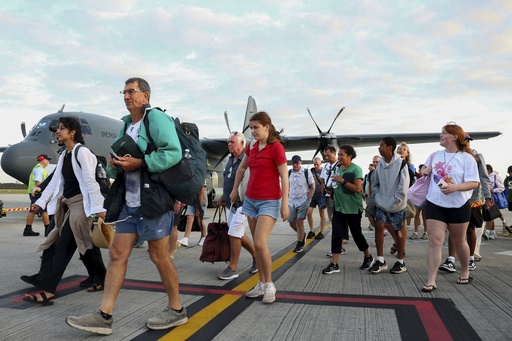
Search Efforts Expand Following Earthquake in Vanuatu
WELLINGTON, New Zealand – The search for victims of a powerful earthquake that struck Vanuatu has widened as rescuers from various nations have arrived to aid in the recovery efforts. They are operating throughout Port Vila, the capital, where many structures have collapsed and have yet to be thoroughly searched. The magnitude 7.3 quake, which occurred just off the coast three days ago, has left many uncertainties regarding the exact number of casualties.
Reports indicate that damage is concentrated in the downtown district of Port Vila, where the United Nations reported that eight individuals have been rescued from under rubble. Currently, there are at least 12 confirmed fatalities and more than 200 injuries, with the expectation that these numbers will rise as more areas are assessed.
Aid organizations have pointed out that not all individuals affected have reached medical facilities, meaning the actual count of the injured and deceased may be higher. Many locals are apprehensive about visiting the main treatment center, Vila Central Hospital, which has sustained substantial damage.
According to UNICEF, over 1,000 people have been displaced due to the disaster. Aid workers estimate that approximately 20,000 residents are likely without access to clean water, posing a significant health risk.
Water Supply Crisis Looming
Experts warn that the lack of access to safe water could lead to a public health emergency. Brecht Mommen, a specialist in water, sanitation, and hygiene with UNICEF, emphasizes the urgency of organizing water delivery to prevent outbreaks of diseases related to contaminated drinking water. He highlighted the challenge in identifying and repairing the extensive network of broken pipes in Port Vila, further complicating the recovery process.
Relief Efforts Complicated by Weather and Terrain
Ongoing relief operations are facing obstacles due to difficult terrain, including blocked roads and disruption in communication systems. Rain is expected in the coming days, which could exacerbate landslides that have already occurred since the earthquake, including one that has obstructed the main sea port. Although the airport is currently limited to humanitarian flights, it is set to resume normal commercial operations soon.
As residents begin to hope for a return to normalcy, analysts note that existing issues facing Vanuatu prior to the quake could delay recovery efforts.
Vanuatu: A Beautiful but Vulnerable Location
Vanuatu is a picturesque archipelago located in the South Pacific between Australia and Fiji, comprising over 80 islands and home to approximately 330,000 residents. This nation sits on the Pacific Ring of Fire, frequently experiencing seismic activities. The recent earthquake was particularly severe, with no comparable event in recent history.
Climate change has also posed a severe threat to Vanuatu, which earlier this month led a coalition of small island nations in a pivotal legal case at the United Nations concerning the environmental responsibilities of larger countries regarding emissions.
Tourism Struggles Amidst Multiple Challenges
Vanuatu is renowned for its lush landscapes and stunning seascapes, making it a favored destination for tourists, especially from Australia and New Zealand. Tourism accounts for about 40% of the economy, alongside agriculture. Unfortunately, the impact of natural disasters has hampered the tourism sector’s recovery, particularly following the coronavirus pandemic and severe cyclones earlier this year. Additionally, the national airline’s recent collapse has further complicated travel to the islands.
Political Instability Complicates Recovery Efforts
Currently, Vanuatu is functioning under a caretaker government after the President dissolved Parliament in light of a no-confidence vote against Prime Minister Charlot Salwai. With Salwai now serving as the caretaker leader, the political landscape remains tumultuous, creating uncertainty about effective recovery strategies. Analysts point to the unstable political environment as a barrier to securing funding for vital development projects.
Geopolitical Dynamics in the Pacific Region
In the context of broader geopolitical tensions, Vanuatu has found itself at the center of increased competition between western nations and China. While Australia remains the primary donor to Vanuatu, the current administration has begun seeking support from China for infrastructure initiatives, which may lead to increased debt. Experts believe that any upcoming government will actively seek new financing opportunities, which could influence the international relations landscape in the region.
